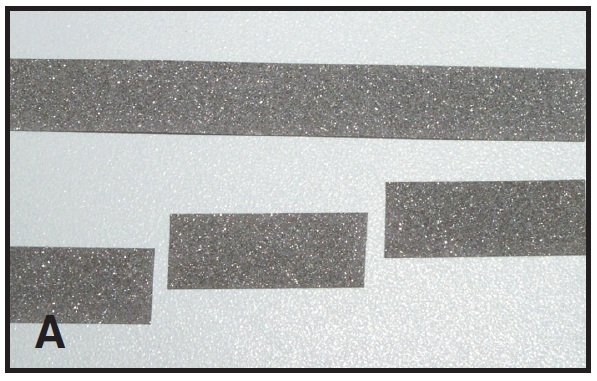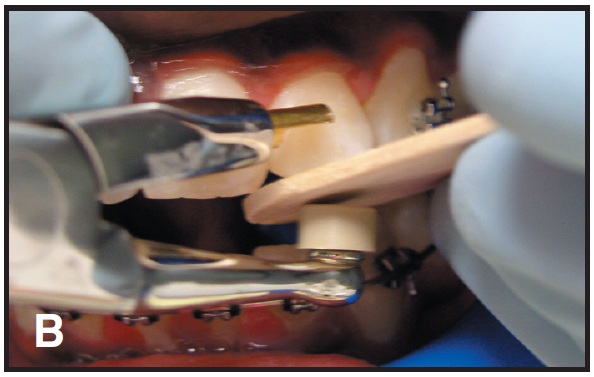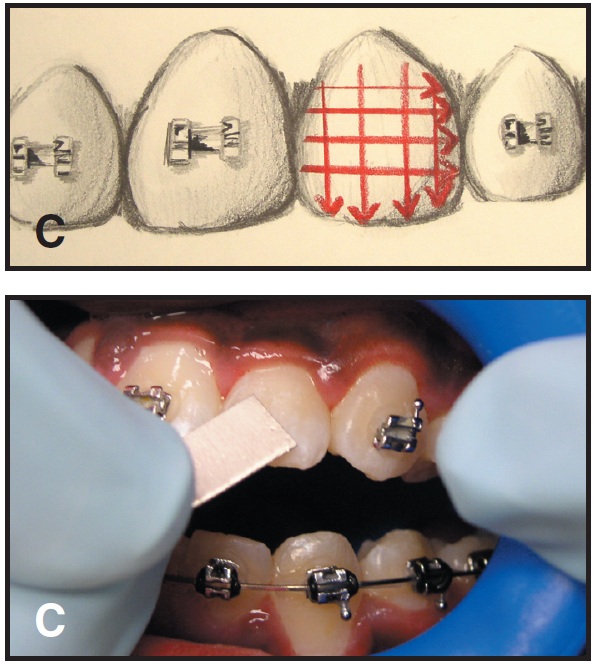When a bracket fails immediately after bonding, a second attempt, with particular emphasis on moisture control, is usually successful. A small percentage of teeth, however, do not respond to the orthodontist's most fastidious attention to the adhesive manufacturer's instructions. An informal survey I conducted among orthodontic colleagues suggests that the most difficult teeth to bond are those that have been bleached, are mottled, or have an enamel chemical composition that just seems to resist adhesion. For several years I have employed a simple technique that allows successful attachment to more than 90% of these recalcitrant teeth. I use Lancer single-sided, 6mm coarse-grit metal abrasive strips*. The 50mm-long strips come in packages of 10, but for economy, I cut each strip into three pieces about 17mm long (Fig. A).
If a bracket refuses to adhere, I remove any adhesive remnants with a carbide-tipped AEZ Direct Bond Remover** (Fig. B). A tongue depressor distributes the force from the plier pad and thus prevents engaging the crown as a lever. I then rub the tooth with the abrasive strip in four vertical and four horizontal strokes (Fig. C) before continuing with my usual bonding procedure.
A single abrasive strip maybe used on one to 10 teeth, but the ends should be rotated from one tooth to the next. The strip is discarded after each patient.
Similar articles from the archive:



With obviously mottled teeth, I do not wait for bond failure, but rub the teeth with the abrasive strips before beginning the bonding process. Note, however, that this technique is not recommended for routine bonding. Although the abrasive strips are less invasive than grinding with a green stone, if loss of enamel is a concern, the patient can be advised to rinse twice daily with a fluoride mouthrinse for two to three weeks. This should ensure adequate remineralization.
FOOTNOTES
- *Lancer Orthodontics, 253 Pawnee St., San Marcos, CA 92069.
- **Ormco/“A” Company, 1717 W. Collins Ave., Orange, CA 92867.


